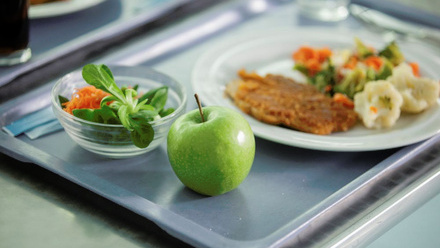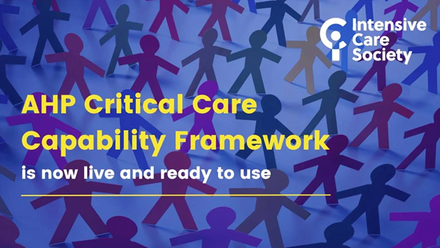Feeling sick (called nausea) is common after critical illness. It can happen for different reasons and it usually goes away once you begin to recover and get stronger. Being sick (called vomiting) is your body’s way of getting rid of something that your stomach doesn’t want or as a side effect to an illness or medicine. Sometimes feeling anxious or worried can make us feel or be sick.
How can my nausea and sickness be helped?
There are different ways that you can be helped with nausea and vomiting, depending on why it is happening and how bad it is. Most mild forms of nausea and vomiting can be managed with diet and lifestyle tips, such as the ones below.
However, there are times when you will need to seek medical advice about sickness or vomiting. For example, if you:
- have been vomiting for more than 24 hours
- have been vomiting blood or the colour is very dark (like coffee grounds)
- have not been able to manage more than 4 cups of fluid in a day or if you have been unable to eat anything for 48 hours
- notice that your urine (wee) is dark yellow or if you have been weeing less than usual
- are feeling very weak, dizzy or confused
- are unable to take important medications or to keep them in your stomach (because you are vomiting)
- have a high temperature as well as nausea or vomiting
- are experiencing constant stomach pain or bloating that is not helped by being sick.
These are some of the reasons you will need to seek medical advice, but there are other ones to, so do check with your doctor or nurse if you are worried.
What should I eat when I feel sick or might be sick?
If your doctor thinks that your nausea or vomiting can be helped by diet and lifestyle, it may help if you make some changes to the foods that you eat or to when you eat.
Tips for managing nausea:
- Eat smaller meals or snacks. Try and eat them throughout the day to avoid getting full too quickly or to avoid feeling sick because your stomach is empty.
- Avoid very spicy, fatty or sweet foods as these may make the feeling of sickness worse
- Keep to plain, low fat food choices such as light meals with plain meat or fish along with plain potato, rice or pasta.
- Choose foods which are easier to eat, such as sandwiches, cold meats and chilled desserts, yoghurts and mousse.
- Try dry foods such as crackers, toast or biscuits.
- Avoid strong-smelling foods, as these may make the feeling of sickness worse.
- Let a relative or friend cook for you, that way you are not put off from eating by being around the smell while it is cooking.
- Try drinks that contain ginger (such as ginger tea and ginger beer), as this may help your stomach feel more comfortable. Peppermint or herbal tea may also help.
- Suck on ice lollies or sip cold liquids.
- Avoid drinking large amounts before a meal because this will fill you up. You can have a drink 30 minutes before or after eating, unless you feel that sipping a drink helps you while you are eating.
- Keep your mouth fresh by regular toothbrushing or by using mouth wash. This can also help with unpleasant tastes.
- Suck on sweets, particularly peppermint ones.
- Eat what you feel like eating. Don’t worry if you ‘go off’ your favourite foods because you will want to eat them again when you feel better.
Tips for when you have been vomiting:
- After you’ve been sick, it’s important that have a drink to put liquid back in your body that it has lost from being sick. This means drinking small amounts often (such as water). You can do this every 10-30 minutes during the day and then build up to drinking your normal amount when you are able to.
- Once you have managed to keep the drink in your stomach, you can try eating a small amount again. Choose bland foods to begin with, such as bread, crackers, plain soups, rice and pasta. Sometimes tinned fruits can be refreshing. Continue to slowly try and eat what you normally would when you feel you are ready to.
Is there anything else that can help sickness or nausea?
There are lifestyle tips that may help you, such as:
- sitting upright for at least an hour after each meal
- getting fresh air and activity if you feel well enough
- finding ways to relax such as listening to music, watching television or doing other activities that make you feel calm - try breathing exercises, meditation or mindfulness techniques. This could help even if you can only do them for a few minutes.
Is there medicine that can help?
If your nausea or vomiting is not getting better, or you are worried about it, speak to your doctor. They may suggest you try some medicine to help (depending on the reasons for why you are feeling sick).
If you are given medicine to help with your sickness, you will be told when you need to take it and how often. Some medicines you can take at the first sign of nausea (to help prevent this getting worse and leading to being sick) or take them before eating to help you eat and drink enough - but always check the specific advice on the medicine box and leaflet.
If the medicine you have been given doesn’t seem to be working, talk to your doctor as there may be other medicine you could have.
Summary:
If you are feeling sick or vomiting, this should get better in time. While you are feeling sick, it can help changing what you eat and when you eat, depending on the reason for the sickness.
More information:
NHS UK advice on:
NHS Inform advice on:
See ICUsteps information for more information







